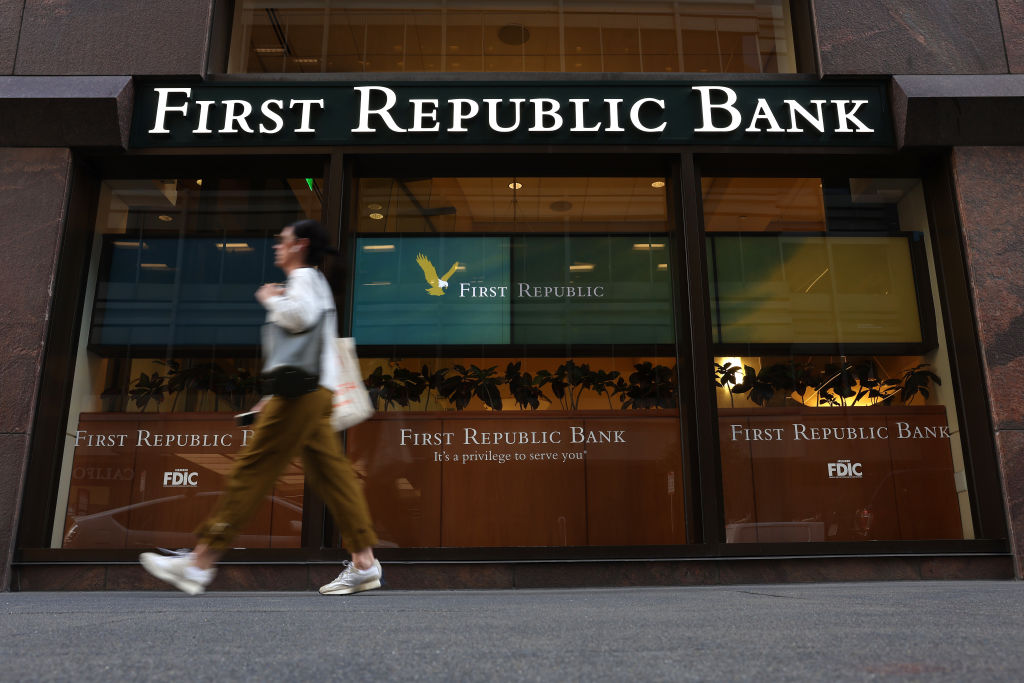
The San Francisco-based First Republic Bank recently became the third U.S. bank to close its doors in just two months, after the Federal Deposit Insurance Corporation (FDIC) announced that most of the bank’s assets would be acquired by JPMorgan following a weekend sale. All locations opened as JPMorgan Chase branches on Monday.
Hot on the heels of the public failures of Silicon Valley Bank and Signature Bank in March, the move might raise alarm bells for depositors on the reliability of the banking industry. However, experts say government protections safeguard most depositors in the event of a bank failure—an event that is far more unlikely than recent headlines might make it seem.
Read More: First Republic Bank Seized by Regulators and Sold to JPMorgan Chase
“We have thousands of banks in the U.S., and very few of them fail.” says Morris Pearl, former managing director of BlackRock, who worked with the Federal Reserve, Treasury, and FDIC to assess the cost of the Citibank bailout in 2008. “And we have an excellent record of the government taking care of depositors in the banks that do fail.”
What happens if my bank closes?
Despite the macro implications of a bank failure, a bank’s closure doesn’t have much impact on most individuals’ pocketbooks. With the exception of IndyMac, which failed in 2008 and left over 8,000 depositors at a loss of nearly $266 million according to the LA Times, Pearl says that all deposits from failed banks have been protected—in part because the FDIC changed regulations swiftly after IndyMac’s failure to ensure any future depositors wouldn’t be hung out to dry.
In the case of First Republic and other FDIC-insured banks, customers have not had much to mourn save the personal relationship they might have had with a smaller bank, Pearl says. “People at First Republic Bank are not even going to be out of their money for an hour,” he says. “So it didn’t really affect them at all.”
How do I protect my money?
There are a few ways to keep track of how your bank is doing. A bank’s stock price, and whether they’re trying to raise money through a share offering or sell off stock, might be an indicator of problems. Taking a look at the bank’s balance sheets can also point to the kind of investments they’re making and their viability.
“Check very simple things like is the bank making a profit?” Pearl recommends. “If the bank is losing money, you have a problem.”
But for those unlikely to find themselves digging through financial reports, the key thing is to check if your bank is covered by FDIC insurance, which will ensure that any deposit under $250,000 is recovered in the event of a failure. If your bank is covered by the FDIC, your money is protected without any action on your part. (It’s important to note that some products that banks offer, like stocks and bonds, are not covered by FDIC insurance.)
There are several ways to check if your bank is covered—look for the FDIC sign at your bank, ask a bank representative, call the FDIC at 877-275-3342, or use the FDIC’s BankFind tool.
Those with deposits at big banks like JPMorgan Chase, which holds roughly 10% of the nation’s bank deposits, are likely safe, given that the banks are considered “too big to fail.”
“Keep your money in an FDIC-insured bank if you have $250,000 or less. If you have more than that I would go with one of the big banks,” he says. “The government is not going to let them fail,” he says.
What other options are there?
For individuals or businesses with more than $250,000 in deposits, Pearl says it’s possible to divide funds between banks. One way to do this is through an Insured Cash Sweep, which distributes funds across banks to keep funds below the FDIC insurance limit.
You can also put your money in a money market fund—a mutual fund which invests money into safe investments such as Treasury bonds. “Even if the people who manage the fund go bankrupt, the fund itself would still be safe,” he says.
Pearl advises against pulling your money from the banking system entirely. “Whatever you do with your money, there is some risk. If you have your money in cash in your desk drawer at home, your house might burn down. If you have your money in your pocket, someone might mug you,” he says.
“I would contend that having your money in an FDIC-insured bank has less risk than most other things you could do.”
More Must-Reads from TIME
- Donald Trump Is TIME's 2024 Person of the Year
- Why We Chose Trump as Person of the Year
- Is Intermittent Fasting Good or Bad for You?
- The 100 Must-Read Books of 2024
- The 20 Best Christmas TV Episodes
- Column: If Optimism Feels Ridiculous Now, Try Hope
- The Future of Climate Action Is Trade Policy
- Merle Bombardieri Is Helping People Make the Baby Decision
Write to Simmone Shah at simmone.shah@time.com